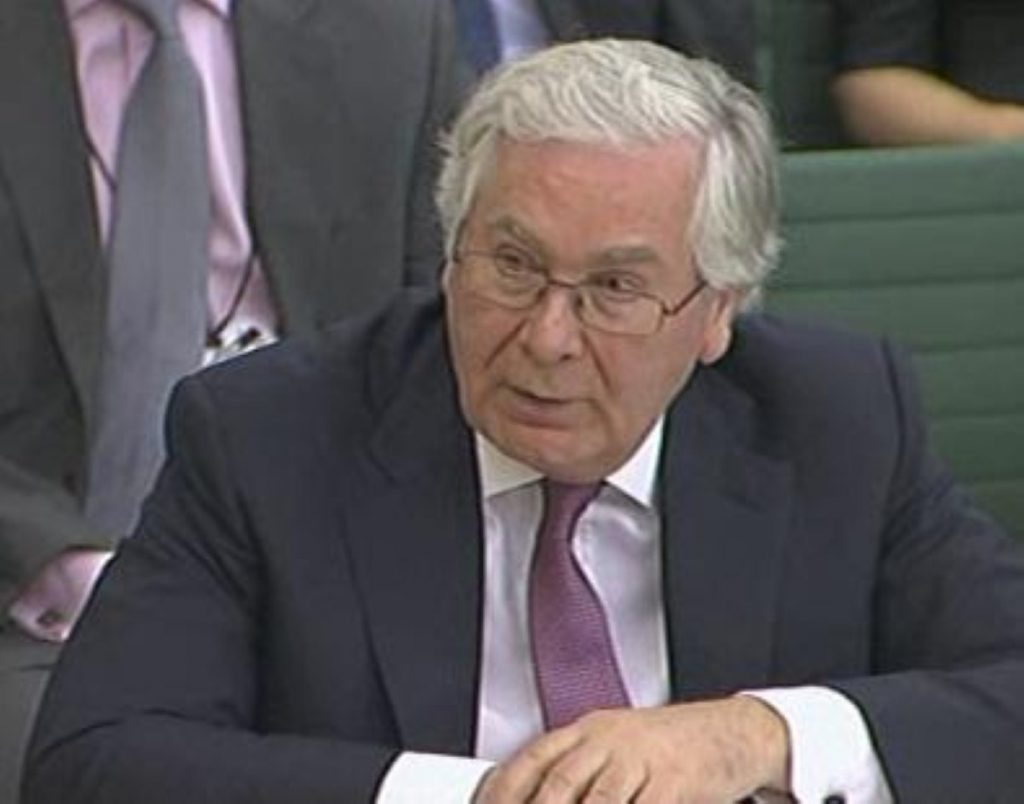King ‘gave Barclays revolver’ to polish off Diamond
Mervyn King faces questions about his conduct after it emerged he privately pressured Barclays chairman Marcus Agius to force Bob Diamond's resignation.
Diamond quit his post at the end of a chaotic week in which the Libor interbank lending rate scandal left Barclays' reputation in tatters.
It has now emerged that the Financial Services Authority's (FSA) chair, Adair Turner, encouraged King to put pressure on Agius after himself making clear to the Barclays chairman he believed Diamond had to go.
Both Turner and King insisted they had acted appropriately in an appearance before the Commons' Treasury committee this morning.


But committee chair Andrew Tyrie accused them of having given Agius a figurative "revolver" which they wanted Diamond to use on himself.
"Neither I nor the governor were giving a regulatory instruction," Turner insisted.
"Both of us were giving a consistent message that they needed to think very clearly about whether Bob Diamond could have the confidence… to make this substantive change. We were not certain that was the case."
The Bank of England has no statutory power to intervene in banks' governance, but that did not stop King from doing so – or Turner from allowing him to step in and force Diamond out.
"I don't see a problem with the governor of the Bank of England choosing to see the chairman to express a point of view," Turner said.
King said he believed Diamond could not stay in his job because any incoming chairman at Barclays would have been left in an "impossible position" – either accepting Diamond in his job or forcing the chief executive to leave.
"The proper thing for me to do was to have a conversation with the chairman and a senior independent director. I made it very clear I was not speaking for the government, although I made it clear to the chancellor I was speaking [to them]," he told MPs.
"I warned the chairman and the senior independent director to be very conscious of the concerns which the regulator had raised."
Turner had earlier said he did not believe chancellor George Osborne was an appropriate person to contact about the matter.
Tyrie claimed to have uncovered a "gaping hole in the Bank's governance" which had allowed King to get "dragged" into "arbitrary meetings of this type".
But the Bank governor, who said he had discussed the meeting with his chief legal adviser but not with either of his deputies, insisted his actions were appropriate.
"When I met them it became clear to me they hadn't really taken on board the loss of confidence in the executive management," King explained.
"The point of my meeting was to say 'you really need to understand the depths of the concerns that the regulators have about the executive management, and I want you to go away and reflect on that'."
Questions about King and Turner's conduct could affect the race to succeed King as governor of the Bank of England. Turner and deputy governor Paul Tucker are viewed as frontrunners for the appointment, due to be made next year.












